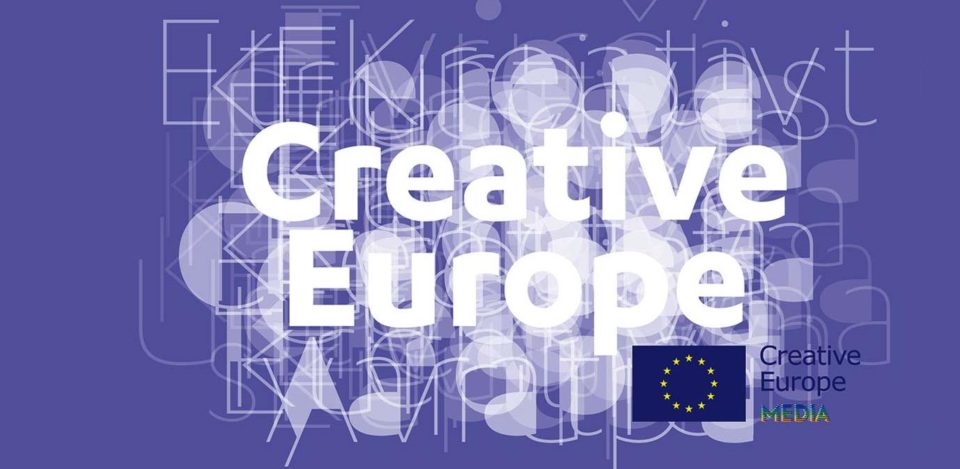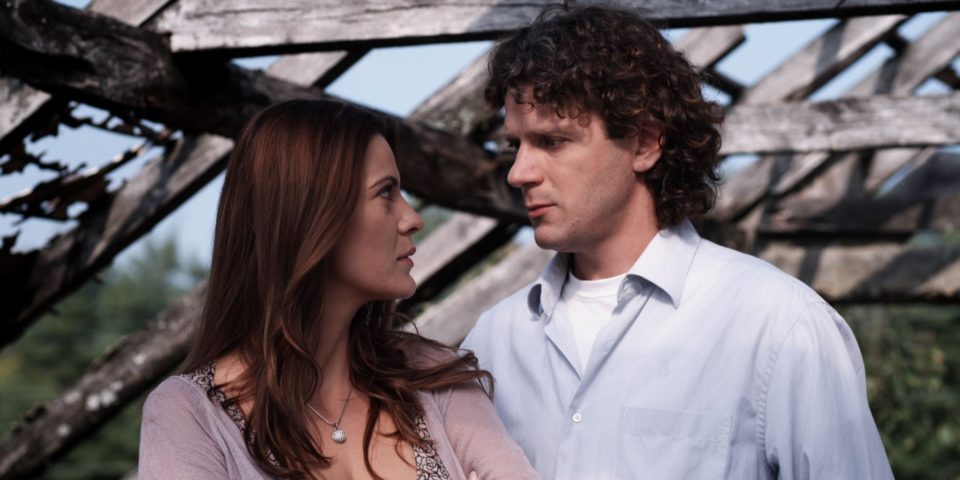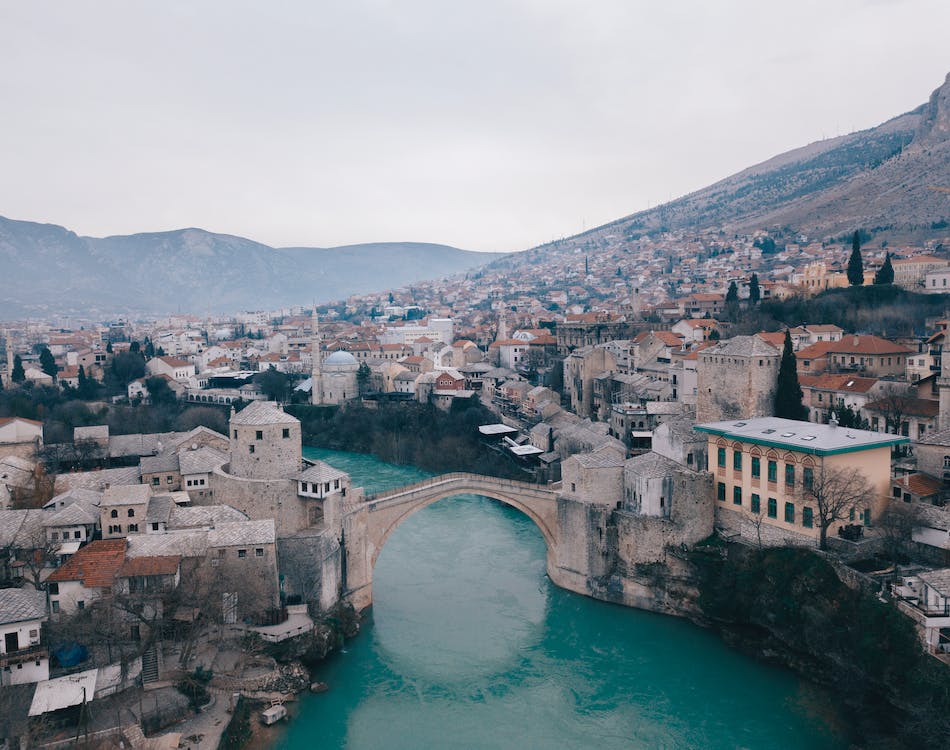
Together, non-governmental organisations, businesses, and cultural institutions from across Bosnia and Herzegovina have received approximately four million euros from the Creative Europe Fund over the past six years. This fund is a great opportunity for local cultural workers to meet and collaborate with their colleagues from all over Europe, improve their work, and produce high-quality international programs.
The Creative Europe Desk in Bosnia and Herzegovina has been operating since July 2015 and is led by Aida Kalender, an electrical engineer and Master of Cultural Management and Cultural Policies. Aida has been working in the cultural sector for 20 years. She was responsible for the “I am the Museum” campaign, which opened the National Museum of BiH after it was forced to close for three years. The campaign was awarded the Europa Nostra award – the largest European award for cultural heritage – in 2016.
Creative Europe is a European Union-level fund for financing projects in the cultural and audio-visual sectors. In the period from 2014 to 2020, the Fund disbursed 1.36 billion euros to projects across the continent.
“These funds are distributed to applicants in Creative Europe member countries. These are EU members and neighbouring countries that have signed an agreement with the European Commission and entered the Creative Europe program. The funds are distributed through the more than 20 open calls and competitions that are announced every year,” explains Aida Kalender.
In addition to the largest and most relevant cultural events, Creative Europe also helps small cultural institutions in underdeveloped countries. Applications are evaluated by international experts based upon the quality of the project, its European dimension, and the extent to which the project fits into the priorities set by Creative Europe. One of the main priorities is audience development, as well as working with children, youth, and marginalised groups.

“It does not matter if projects are from small or big towns, the only thing that is valued is the quality of the project! So far, BiH organizations have received approximately four million euros from the Creative Europe fund, which is a very good result,” says Kalender.
Through its projects, Creative Europe aims to direct the cultural sector towards professionalisation and modernisation, so that cultural production appropriate to the 21st century can be created.
“Of course, that does not mean neglecting cultural heritage. On the contrary, the promotion of cultural heritage is very prominent in the Creative Europe calls, but with an insistence on new forms of representation and interpretation. The goal is to bring it closer to a younger audience, one which is already growing up on new technologies. So, the kilim, sevdalinka, and baklava, when brought into the context of, say, artificial intelligence, can take on a completely new dimension,” explains Kalender.
Support for Film and Theatre
The head of the MEDIA desk of Creative Europe is Zoran Galić, a film producer from Banja Luka. He is the founder and owner of VizArt Production, which has more than 30 feature and short feature, documentary, and animated films in its portfolio. He is a member of the European Film Academy and a European expert on projects in culture and cultural policies. He says that BiH has been an area that has been active in the film industry since the late 1950s.
“This all stopped during the 1990s, but with the films and awards that came in the new millennium, we have returned to our rightful place. Bosnian film is our most important and largest export product, and the MEDIA sub-program (part of the Creative Europe program that finances film and complementary activities) has, since 2014, become an important way of financing many film projects,” he explains.

During the last six years, more than one hundred projects have been co-financed by this program, thanks to which we have also been able to see many European films in BiH cinemas.
“We have developed our most important films with the MEDIA program, and the Sarajevo Film Festival and CineLink Industry Days have been supported from the beginning through every call for support to festivals and markets. For this success in gaining sustained support from the MEDIA program, we can thank the agile film producers who used the opportunity offered by this pan-European fund in the best possible way,” explains Galić.
In 2018, the SHIFT KEY project received the support of the Creative Europe program. The lead organisation on the project is the MESS International Theatre Festival from Bosnia and Herzegovina, with partner festivals from the Netherlands, Spain, Great Britain, and Italy.
“The festivals selected 12 young companies and artists to support. The project thematically treats the fluidity of European identity and celebrates the richness of diversity. All artists who are part of the project originate from several European countries or were born in one country and live and work in another. Everyone is a migrant in one way or another,” says the director of the MESS festival, Nihad Kreševljaković.
Kreševljaković sees the Creative Europe Fund as an important opportunity for the implementation of ideas and projects. In addition to financial assistance, he emphasizes how it also enables those supported to gain valuable experience.
Aida Kalender believes that BiH does not lag behind Europe in terms of ideas and creativity, but that it lacks a systematic approach to culture, including transparent financing of culture, a focus on quality, systematic support for young talent, audience education, and overall professionalisation of the cultural sector. In short, contemporary cultural policy.
Candidacies for European Capital of Culture
Kalender sees the candidacies of Mostar and Banja Luka for the European Capital of Culture (ECOC) as extremely important for the cultural sector of BiH. Firstly, the candidacies meant that for the first time, the city administrations became interested in supporting a long-term development project in the field of culture. Secondly, the initiative came from the culture sector itself, where cultural workers were empowered to try to persuade their cities to enter this very complicated application process.
“The processes took a long time, and an atmosphere of togetherness was created among cultural actors who are usually fragmented and divided. And finally, for the first time since Dayton, the two Bosnian cities wrote down their cultural strategies, which represent a vision for cultural development over the next 10 years. That is a huge success,” she tells us.
She believes that it is a huge success that both Mostar and Banja Luka were shortlisted for the ECOC and that they “defended” their applications before a European expert commission.

“What was clear to the members of the commission, however, was that neither of the two cities could give guarantees that the financing of such a large program would be truly supported by local actors from BiH, which is the obligation of every city that carries the title of ECOC. The share of local funds in the multi-million budget of the ECOC is quite large: only one and a half million euros come from Europe. The ECOC process lasts from five to seven years and no one can guarantee what the political system in our country will be like in that period. Will, for example, the new minister accept or obstruct the decision made by his predecessor regarding the ECOC? The expert commission correctly assessed that the political support for such a huge project is not stable. They made the right decision in awarding the title of ECOC to the Norwegian city,” adds Kalender.
As explained, if it happened that any of the BiH candidate cities were elected, an agreement on the implementation of the ECOC program would be signed, which is binding for the city. In the case that the planned budget commitment was not fulfilled, the city would get into financial problems, such as was the case with Maribor.
“The decision that neither Mostar nor Banja Luka would receive the title of ECOC is probably still a true reflection of our realistic capabilities, but not our wishes,” concludes Aida Kalender.
__________________________________
This article was initially published in the first edition of MIR Magazine. MIR, which means ‘peace’ in Bosnian is an annual publication and platform for young inventive people developed by the Post-Conflict Research Center and Balkan Diskurs. It is dedicated to individuals and organizations that left us a legacy of strongly built foundations to continue our fight for peace and justice.






